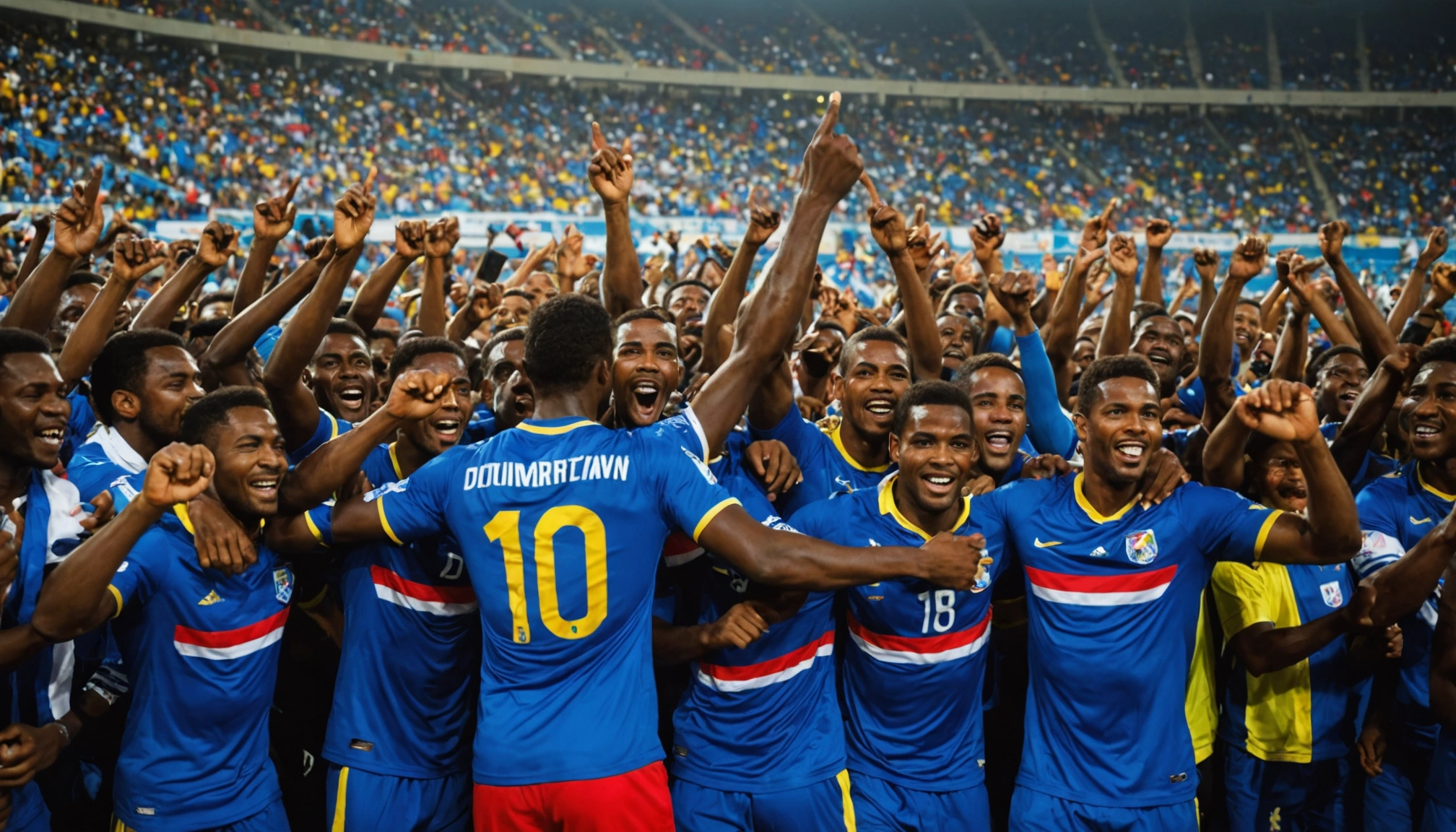Cape Verde On The Brink Of 2026 World Cup Qualification
Discover how Cape Verde and other nations are closing in on 2026 World Cup qualification, with key matches and qualification formats explained.

By Editorial
Introduction To The 2026 World Cup Qualification Race
The road to the 2026 FIFA World Cup, set to be jointly hosted by Canada, Mexico, and the United States, is shaping up to be one of the most exciting qualification campaigns in recent memory. With the tournament expanded to 48 teams, a host of nations, including underdogs like Cape Verde, are on the cusp of making history by securing their first ever place at football’s most prestigious event.
This article explores the current qualification landscape across all confederations, highlights the teams who have already booked their spots, and examines the thrilling battles still to come.
Who Has Qualified So Far For The 2026 World Cup?
As of September 2025, eighteen teams have secured their places for the World Cup finals. The host nations - Canada, Mexico, and the United States - were granted automatic qualification. Beyond the hosts, several teams from Asia, Africa, South America, and Oceania have also punched their tickets early.
- Asia: Australia, Iran, Japan, Jordan, South Korea, Uzbekistan
- Africa: Morocco, Tunisia
- South America: Argentina, Brazil, Ecuador, Uruguay, Paraguay, Colombia
- Oceania: New Zealand
Notably, Jordan and Uzbekistan will be making their World Cup debuts, underlining the expanding global reach of the tournament.
The African Qualification Drama: Cape Verde's Historic Opportunity
Among the most compelling stories is Cape Verde’s pursuit of a maiden World Cup appearance. Situated in a competitive African field, Cape Verde currently leads their qualifying group and need just one win from their final two matches to qualify. Achieving this feat would make Cape Verde the second smallest nation by population to ever reach the World Cup group stage, trailing only Iceland’s 2018 appearance.
The African qualification format sees nine groups of six teams each, with only the group winners advancing directly. Cape Verde’s rivals for the top spot include football powerhouses like Egypt, South Africa, and Ivory Coast. The stakes are high, and the upcoming October fixtures promise to be decisive.
For fans interested in diverse football stories, a look at football in Greenland offers insight into the sport’s global passion beyond traditional powerhouses.
How Does The Qualification Process Differ By Continent?
Asia
Asia has eight direct qualification spots plus one intercontinental play-off place. After multiple rounds starting in late 2023, six teams have already secured qualification. The final two Asian spots will be decided in October 2025, with UAE, Qatar, Iraq, Oman, Saudi Arabia, and Indonesia battling in the fourth round.
South America
South America offers six direct places plus one play-off slot. The continent’s grueling home-and-away league format was concluded recently. Bolivia earned the play-off spot by defeating Brazil in the final round, an upset that highlights the competitive nature of CONMEBOL qualifiers.
Europe
Europe’s 16 places are up for grabs through 12 groups, with group winners qualifying directly and runners-up entering play-offs. Current group leaders include England, France, Spain, and the Netherlands. England’s qualification looks likely, pending results in October, reflecting the high stakes in UEFA’s rigorous campaign.
North, Central America, and the Caribbean (CONCACAF)
With three automatic spots already taken by hosts, six places are available from qualifying rounds. Teams like Suriname, Jamaica, and Honduras are currently leading their groups, aiming to avoid the intercontinental play-offs.
Oceania
New Zealand has secured the continent’s direct qualification spot by defeating New Caledonia, who will enter the intercontinental play-offs. This is a significant achievement as Oceania usually only obtains a play-off place.
Intercontinental Play-Offs: The Final Hurdle
Two World Cup spots will be decided by the intercontinental play-offs in March 2026. So far, Bolivia and New Caledonia have qualified for this mini-tournament, which will also include teams from Africa, Asia, and North America. This high-pressure scenario often throws up surprises and underdog stories.
What Makes The 2026 World Cup Qualification Unique?
The expansion to 48 teams means more nations will experience the World Cup stage, increasing football’s global inclusivity. For emerging football nations like Cape Verde and Uzbekistan, this is a historic opportunity to showcase their talent on the world’s biggest platform.
Moreover, the joint hosting across three countries in North America provides a unique backdrop with diverse fan cultures and state-of-the-art stadiums ready to welcome supporters worldwide.
Key Matches To Watch In The Coming Months
The October 2025 international break will be pivotal. African groups will see final rounds determining the last direct qualifiers. Egypt, Senegal, South Africa, Ivory Coast, Algeria, and Ghana are among those in tight races.
In Europe, England’s upcoming matches against Latvia, alongside Serbia’s fixtures against Albania and Andorra, could confirm England’s place. Meanwhile, Asia’s fourth-round qualifiers will refine the continent’s final line-up.
Conclusion: What To Expect As Qualification Winds Down
The qualification race to the 2026 World Cup is thrilling football drama at its best, blending established giants with hopeful newcomers. Cape Verde’s potential breakthrough epitomises the tournament’s growing diversity and the dream of smaller nations reaching football’s summit.
Fans should keep an eye on the intercontinental play-offs and the last qualification matches, as these will finalise an unprecedented 48-team line-up ready to deliver unforgettable moments in 2026.
For more detailed insights into football’s evolving landscape, including team strategies and player performances, check out Europe’s least changed Ryder Cup team aims for historic win, offering a look at consistency and success in competitive sports.
Related topics
Editorial
Sports expert at SportsScoop
Specialist in sports analysis and journalism
Related articles
Want to read more?
Explore our comprehensive collection of sports articles and analysis, or contact us for more information.



